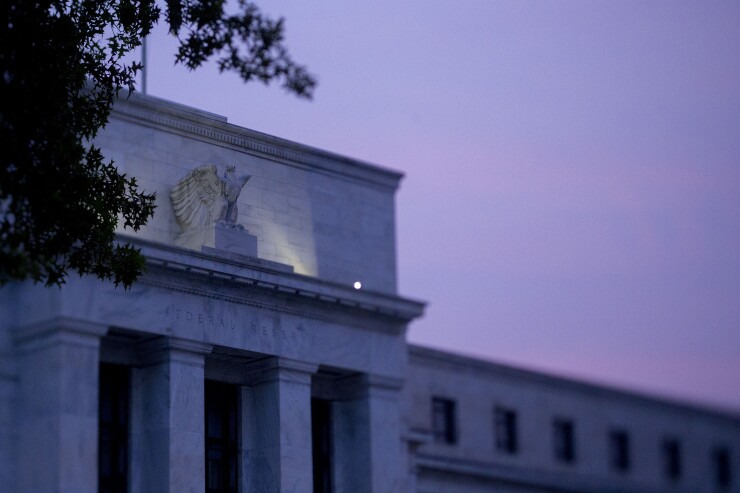Merchants may have gained an edge in their dispute with Visa over how EMV debit transaction routing is handled at the point of sale.
The Durbin amendment allows merchants to have a choice of multiple debit routing options, enabling them to decide based on price. But terminals are being designed with a prompt that lets the consumer make that choice with little information provided as to what it means — a setup that has angered merchants that see this setup as steering shoppers to pick the pricier Visa and Mastercard options.
A recent question-and-answer posting on the

By having terminals already programmed to present routing choices to consumers, Visa in effect put rules in front of the merchants "designed to intimidate merchants into believing they had to provide the consumers with a choice to opt out of merchant routing," said Mark Horwedel, CEO of the Merchant Advisory Group.
"That began the dispute about the way things work and Visa can basically withhold merchants' daily settlement money unless they abide by their rules, whether they are based on law or not," Horwedel contended.
Visa did not respond by deadline to an inquiry from PaymentsSource. In the past, the card brand has said merchants need to work with acquiring partners to have terminals set up the way they want to display the routing options and that Visa does not mandate any process regarding those prompts to the merchants.
Merchants want a clearer answer from Visa, as eight major retailer associations this week sent a letter to Visa CEO Charlie Scharf and CEO-designate Al Kelly asking for a response from the card brand related to its stance on the new Fed posting. The merchants also were noting that Visa's
The issue drew attention six months ago when the
The alliance of the independent debit networks had concerns about the process because the choices on the terminal screen, after a cardholder chooses debit, came up as Visa, Mastercard or "U.S. Debit" or "U.S. Common," the choice for the common application identifier for routing on independent PIN debit networks. Merchants and debit network operators alike contend that consumers don't really understand the choices in front of them and that wording such as "U.S. Common" provides no clarification.
Detractors have since said the argument lies squarely against Visa as the only network supporting this setup, and that the Federal Reserve's answer to that question regarding network roles in Reg II compliance clearly shows the card brand was not following the spirit of the law.
"It's the Fed's role to clarify what the regulation says, and they have done that," Horwedel said. "This is not going to go away. This is about as close to the Fed saying 'you are wrong' as you can get."
Merchants accepting Visa cards are required by contract to provide consumer choice, but it remains a bit of a gray area as to how those choices are presented to the consumer, said Michael Moeser, director of payment at Javelin.
"If the merchant wants to go through a PIN debit network, that is their choice," Moeser said. "I don't see anything in Reg II that says the merchant must provide choice to the consumer, but it also doesn't say the merchant can't send all of the transactions to a single network, so it falls into a gray area."
Visa has squared off in legal battles with retailers Kroger and Walmart over debit card network routing, with
In the
Still, it is important for the networks and merchants to work together now and determine what type of wording would be proper — if consumer choice remains part of the process under Visa, Moeser said.
"I would argue that if the word Shazam or Star [PIN debit networks] came up on the POS screen, the consumer would have no idea what that is," Moeser said. "The networks don't have a lot of options for how this would be worded, but it seems to me the consumer would choose Visa because they know what that is."
Even though it remains a gray area, the "old solution" of just letting the consumer simply choose between credit or debit, without another prompt regarding network routing, and leaving it at that is probably the best approach, Moeser said.
Regardless of who is right or wrong about Reg II compliance, the bigger question to remember is that the Durbin amendment's mandate on routing was supposed to be a benefit to the merchant, not necessarily the consumer, said Brian Riley, director of card services for Mercator Advisory Group.
"Why would the consumer really care on which path the transaction goes?" Riley asked. "They already have the question on whether they want credit or debit, but they don't know First Data from 'Schmirtz' Data as far as debit routing."
The debit routing mandate is also part of the Dodd Frank Act, which may become "one of the great unknowns as we enter the world of Donald Trump," Riley said.





